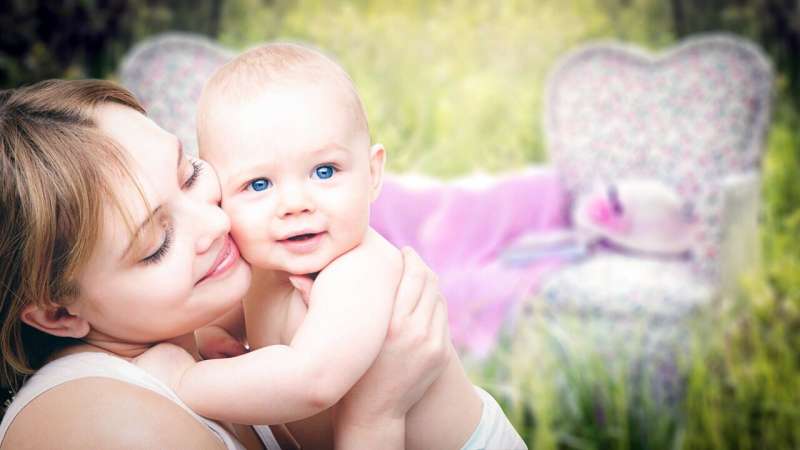This article has been reviewed according to Science X's editorial process and policies. Editors have highlighted the following attributes while ensuring the content's credibility:
fact-checked
peer-reviewed publication
trusted source
proofread
Research illuminates a social media trap for new moms

Being a new mom is not glamorous or effortless—no matter what some social media influencers suggest—and the uptick of idealized portrayals online has been shown to have deleterious effects on moms.
Some moms may be even more affected than others, according to new research from University of Nebraska–Lincoln scholar Ciera Kirkpatrick.
Kirkpatrick, an assistant professor in the College of Journalism and Mass Communications, studies how messaging in the media affects individuals' mental and physical health. As a new mom herself, she turned her attention to influencers on social media and the effects they have on peers. She uncovered evidence, published in Computers in Human Behavior, that exposure to idealized portrayals of motherhood—clean house, happy kids, photo-ready hair and makeup—increased anxiety and envy among new moms.
In a new study published in the Journal of Broadcasting & Electronic Media, Kirkpatrick further unpacked those findings. She examined whether certain personality traits may make some people more susceptible to the negative effects of idealized portrayals of motherhood. She found that those with a higher social comparison orientation—or tendency to compare oneself to others—were more negatively affected by the idealized portrayals than those with a lower social comparison orientation.
Specifically, moms with higher social comparison orientation were likelier to have a lower perceived parenting competence when exposed to idealized portrayals of motherhood, meaning that the idealized portrayals caused these mothers to feel less confident about their own parenting abilities.
"We all have this tendency to compare, but some of us are more inclined to compare than others," Kirkpatrick said. "If we know how these posts are affecting mothers and that they are more detrimental to certain moms, then that helps us, from a strategic health communications or health professional standpoint."
For the study, Kirkpatrick gathered 20 Instagram posts, half non-idealized and half idealized portrayals of motherhood, and included them in a survey of 464 new moms. The survey included questions gauging social comparison orientation, self-esteem, perceived parental competence, life satisfaction and more.
Kirkpatrick also hypothesized that self-esteem could play a role in the effects of the idealized posts, but the findings did not show a significant difference between moms with low or high self-esteem.
As short-form video platforms such as TikTok and Reels explode in popularity, Kirkpatrick is planning to deploy similar experiments with idealized and non-idealized motherhood videos. She said that since she began her research, she has been heartened to see more and more mom influencers becoming a little more honest in their portrayals of parenthood.
"I think it was simpler, with a photo, to capture exactly what you want and leave out everything else," Kirkpatrick said. "It's a little bit harder to make sure everything's perfect in a video, and I've seen more of a push for showing realistic portrayals of motherhood as I've been collecting these types of posts for the next study."
But Kirkpatrick noticed another troubling trend she'd like to explore.
"In some ways, there might be things that idealization is making worse for new moms. I have lots of examples of postpartum moms showing off their 'must-haves'—a $1,000 bassinet or a $300 bottle washer, these really expensive things—and that likely creates pressure on moms. Or the 'typical day' videos that show a postpartum mom meal planning or cleaning their house every night. That just feeds into the pressure."
The findings of this study and subsequent research could help health practitioners develop tools to determine which patients may be more vulnerable to the media landscape and put interventions in place.
"I'd really like to, in some of the next steps of my research, take that step of testing different strategies for overcoming this or mitigating the negative effects that social media motherhood portrayals can have," Kirkpatrick said. "This could provide some guidance to health care providers during prenatal visits or postpartum care to address these things."
More information: Ciera E. Kirkpatrick et al, Idealized Motherhood on Social Media: Effects of Mothers' Social Comparison Orientation and Self-Esteem on Motherhood Social Comparisons, Journal of Broadcasting & Electronic Media (2024). DOI: 10.1080/08838151.2024.2324152


















